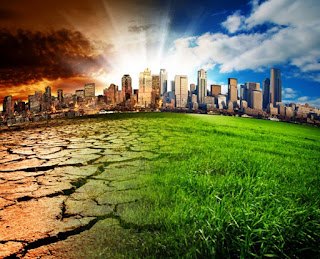Climate change paragraph of 1000 words
Global climate change can be caused by a variety of activities. When climate change occurs; temperatures can rise dramatically. As the temperature rises, it could change many changes on Earth. For example, it can lead to floods, droughts, or heavy rains, as well as very frequent and intense heat. Oceans and glaciers have also undergone some changes: oceans are warmer and acidic, glaciers are melting, and sea levels are rising. As these changes occur more frequently in the decades to come, they will present challenges to our society and our environment.
Get Help With Your Topic
If you need help writing your essay, our storytelling service will help!
During the past century, human activities have released large amounts of carbon dioxide and other greenhouse gases into the atmosphere. Most of the gases come from burning fossil fuels to produce energy. Hot gases are like a blanket around the Earth, trapping energy in the air and keeping it warm. This is called the greenhouse effect and is natural and necessary to support life on earth. However, while greenhouse gases are being produced, the climate is changing and leading to harmful effects on human health and ecosystems. People have adapted to the stable climate we have enjoyed since the last ice age that ended a few thousand years ago. Warm weather can bring about changes that can affect water supply, agriculture, energy and transportation, the environment, and even our health and safety. There are some inevitable climate changes and nothing can be done about it. For example, carbon dioxide can remain in space for about a century, so the Earth will continue to warm up in the future.
Global warming began to take effect on the earth a hundred years ago. It is the practice of rapid global warming in the middle of the last century mainly due to the emission of greenhouse gases as people burn fossil fuels. Global warming is due to increased emissions and greenhouse gases on Earth. Gases that influence the atmosphere are water vapor, carbon dioxide, nitrogen-oxide, and methane. About 30 percent of incoming sunlight is reflected back into space with flowers such as clouds and snow. Some 70 percent are absorbed by the land and the sea, while the rest absorbs the atmosphere. The sun's energy is burning on our planet. This absorption and radiation produced by the air helps life on Earth. Today, the atmosphere is made up of electrical molecules that absorb more heat, so much of the infrared energy released into the atmosphere is eventually absorbed by the air. By increasing the temperature of greenhouse gases, we are making the earth's atmosphere a better heat sink. The climate has cooled and warmed throughout the history of the world for a variety of reasons. The rapid warming we see today is not unusual in the history of our planet. Some of the factors that contribute to climate change, such as volcanic eruptions and changes in the amount of solar energy, are natural. The climate can change if there is a change in the amount of solar energy reaching the Earth. Volcanic eruptions can wreak havoc on the climate, for when they erupt, they emit more than volcanic mud and ash. Volcanoes emit tiny particles made of sulfur dioxide into the atmosphere. These particles enter the stratosphere and illuminate the sun's rays back into space. Snow and ice also have a profound effect on climate. As ice and ice melt warmer climates on Earth, less
energy is produced and this creates more heat. There are many different ways in which plants, animals, and other life on earth can affect the climate. Some can produce greenhouse gases and contribute to global warming as a result of global warming. Carbon dioxide is released into the atmosphere by plants as they make their food through photosynthesis. At night, these plants return carbon dioxide to the atmosphere. Methane is produced while farm animals, such as cattle and sheep, digest their food. Cars and trucks can affect the weather by emitting carbon dioxide when fuel is burned to provide energy. When wildfires occur, carbon dioxide is released into the atmosphere. However, if the same forest grows again, about the same amount of carbon added to the atmosphere during a fire will be removed. Some of the effects that scientists had previously predicted would occur during global warming: loss of sea ice, rising sea levels, and extreme heat. Scientists hope that the earth's temperature will continue to rise in the coming decades, largely because of greenhouse gases produced by human activities. The Intergovernmental Panel on Climate Change (IPCC) said the rate of climate change in each region will vary over time and the ability of different social and environmental programs to mitigate or adapt to change (The Intergovernmental Panel on Climate Change). This has been the warmest decade since 1880. According to the National Oceanic and Atmospheric Administration, 2010 and 2005 have been the warmest years in history. The earth could be heated by an additional 7.2 degrees Fahrenheit during the 21st century if we fail to reduce emissions (National Oceanic and Atmospheric Administration). Rising temperatures will have a major impact on global climate patterns and on all living things. Industrial activity based on our modern civilization has increased carbon dioxide emissions from 280 million to 379 million over the past 150 years (The Intergovernmental Panel on Climate Change).
In conclusion, we need to participate and try to prevent global warming and other effects on climate change. If global temperatures continue to rise in the future, the earth's ecosystem may be in shambles. If people contribute to global warming, the earth will cool off and the high temperatures we now have will be reduced.In an effort to stem the tide of climate change, this land could be a safe haven for humans.





0 Comments